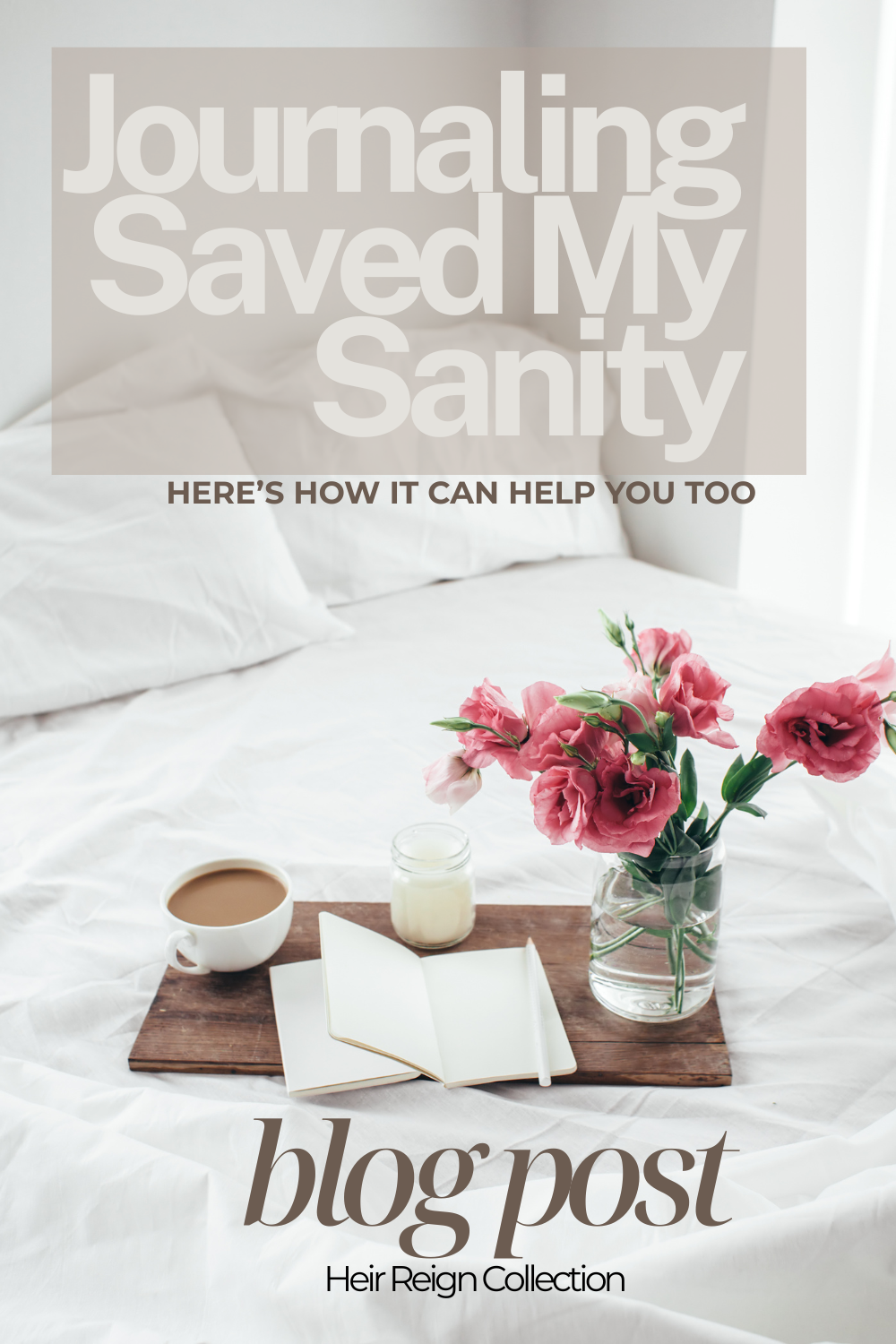
How journaling can be a tool to improve mental health
Share
The Healing Power of Journaling: A Tool for Mental Health
In the fast-paced world we live in, where we're constantly bombarded with information and pressure to be "on" at all times, it’s easy to overlook the importance of taking a step back to reflect on our emotions and mental well-being. One simple yet profoundly impactful tool that can make a huge difference in mental health is journaling. Whether you’re dealing with stress, anxiety, depression, or simply the daily struggles of life, journaling offers a safe space for self-expression and clarity. Here are a few benefits of using a journal for self care.
1. Challenging Negative Thoughts
A key benefit of journaling is its ability to help challenge negative thought patterns. Often, when we’re struggling with our mental health, our minds can become filled with self-doubt, criticism, and anxiety. These thoughts can spiral, making it difficult to see beyond the immediate emotional fog.
When you write your thoughts down, it allows you to see them more clearly and objectively. You can then ask yourself important questions: “Is this thought really true? What evidence do I have to support it?” Writing can create distance from your emotions and offer a more rational perspective. By seeing your thoughts outside of your head, you may begin to realize that some of the negative things you’re telling yourself are exaggerated or unfounded, helping you shift towards a more balanced mindset.
2. A Safe Space for Expression Without Judgment
One of the biggest hurdles to seeking help for mental health issues is the fear of being judged. We all have moments where we don’t feel ready to share our deepest feelings with others, even those we trust. Journaling provides a nonjudgmental space where you can express whatever is on your mind, no matter how raw or uncomfortable.
Writing in a journal allows you to pour out your thoughts and emotions without fear of criticism. There are no expectations, no rules about what you can or cannot say. It’s just you and your thoughts on paper. This sense of safety can be incredibly liberating and healing, especially when other forms of expression feel too intimidating or vulnerable.
3. Clarity and Problem Solving
Sometimes, the jumble of thoughts inside our minds makes it difficult to figure out what steps to take next in life. Journaling can help untangle that confusion. By writing down your feelings, fears, and desires, you can start to identify patterns and gain clarity on what’s truly bothering you.
As you write, you might begin to recognize the underlying issues at play or realize what’s been holding you back. The act of writing out your thoughts can act as a roadmap, guiding you toward solutions or new perspectives. You may also identify practical next steps that were previously obscured by your emotional turmoil.
4. A Productive Emotional Outlet
Life can feel overwhelming at times, and sometimes it’s hard to know how to release built-up emotional energy. Bottling up feelings can cause them to fester and grow stronger, impacting your mental health negatively. Journaling provides a productive and safe emotional outlet for releasing pent-up emotions like anger, frustration, sadness, or even joy.
Rather than suppressing your feelings, journaling offers a way to acknowledge and express them in a controlled and constructive manner. It allows you to process what you’re feeling in real time, making it easier to move past overwhelming emotions and feel more at peace. Writing can be a form of catharsis, helping you “empty out” emotions that may otherwise be difficult to articulate.
5. A Regular Practice for Consistency and Self-Care
Incorporating journaling into your routine can also contribute to consistent mental health care. Having a regular practice of reflecting, whether it’s daily or weekly, can help you stay in touch with your emotions and overall well-being. Even on days when you don't feel particularly down or anxious, journaling can serve as a preventative measure, ensuring that you stay emotionally balanced.
By making it a habit, you can create a sense of structure and discipline around your mental health, providing a grounding tool that helps you maintain clarity and calm in a busy life.
Final Thoughts: Journaling as a Mental Health Tool
Journaling isn’t a quick-fix solution for mental health struggles, but it’s a powerful tool that can provide ongoing support. It can help challenge negative thoughts, offer a space for unfiltered self-expression, bring clarity to difficult situations, and serve as a safe emotional outlet. Whether you’re dealing with ongoing mental health challenges or simply need a way to navigate the ups and downs of life, journaling can be a supportive practice to help you maintain a healthier, more balanced mindset.
Remember, your journal is a personal space, and there are no right or wrong ways to use it. The important thing is to show up for yourself and allow the words to flow. Over time, the simple act of writing can become a vital part of your mental health toolkit.